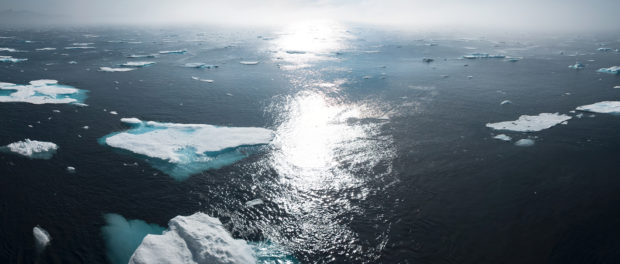Fossil Fuel COVID Bailouts Are Like Treating a Burn Victim with Gasoline
Get our headlines on WHATSAPP: 1) Save +1 (869) 665-9125 to your contact list. 2) Send a WhatsApp message to that number so we can add you 3) Send your news, photos/videos to times.caribbean@gmail.com

Doing the same thing over again and expecting different results is a definition of insanity. So have our world’s biggest economies gone insane? Doubling down on investing in environmental damage, in the illusion that this will help us “recover” from the economic effects of the coronavirus pandemic, is like using gasoline to treat a burn victim—while the fire still rages. Our whole world is at risk of being consumed. Instead, we need to put down the gas can and reach for the extinguisher.
The Guardian reports that hundreds of billions of dollars are being poured into the fossil fuel industry as an attempt to stave off a recession. This is short-sighted in the extreme. For one, fossil fuel pollution kills more people every day than the worst COVID-19 day so far. For another, scientists have already estimated that the ongoing heating and destruction of the Arctic Ocean ecosystem—which is immensely vulnerable to the fossil fuel industry—could lead to as much as $70 trillion in global damages. Further, that same ecosystem, without ice, leads to the release of pathogens and methane from the permafrost in what Dr. Boris Kershengolts of the Russian Academy of Sciences has called “a catastrophe worse than Chernobyl.”
Alarmingly, the Arctic sea ice is over a month late in re-freezing for the winter, record temperatures and forest fires have roasted Siberia, and the Atlantic hurricane season has long since run out of names for storms. Meanwhile, all of humanity remains at the mercy of a coronavirus that jumped species from a stressed animal.
At the heart of it all, we must finally realize the error of our ways: we have forgotten that we are interconnected with all life. Sacrificing Nature to reboot the economy is senseless. If we wish to recover from the effects of COVID-19 on our world and not have to repeat the experience, we must recognize the ways Nature has been sustaining us – and preserve them.
The ice of the Arctic Ocean serves as the Earth’s giant air conditioner, keeping global temperatures and weather patterns stable so we can grow the food and access the water we need to survive. Yet the sea ice is disappearing at a rate that was unimaginable a few decades ago: this year’s sea ice minimum is the second lowest on record. Even in the midst of this catastrophe for all life, some have still set their sights on exploiting this vulnerable ecosystem with oil and gas exploration, commercial shipping, seismic testing, commercial fishing, and more.
The all-volunteer Parvati Foundation has created the Marine Arctic Peace Sanctuary (MAPS) Treaty as an intervention to respond to today’s myriad global humanitarian and ecological crises resulting from our collective disconnect and the damage to the Arctic Ocean ice. The MAPS Treaty establishes the Arctic Ocean north of the Arctic Circle as the largest marine protected area in history—free from commercial fishing, natural resource exploitation, seismic testing, military activity and commercial shipping, which would only quicken the loss of ice. The Treaty was translated into the six official UN languages, and distributed to the heads of government of the 193 member nations of the UN for their formal endorsement. Two world leaders have already signed.
“What is the nature of a virus? It takes,” says award-winning Canadian musician and author Parvati, the founder and CEO of Parvati Foundation. “Now we see the deadly cost of living as takers. We are being clearly warned that to invest in further taking – from Nature, from ourselves, and from our shared future – is anti-life. When we understand this, we immediately and instinctively support MAPS.”
Leave a comment
You must be logged in to post a comment.